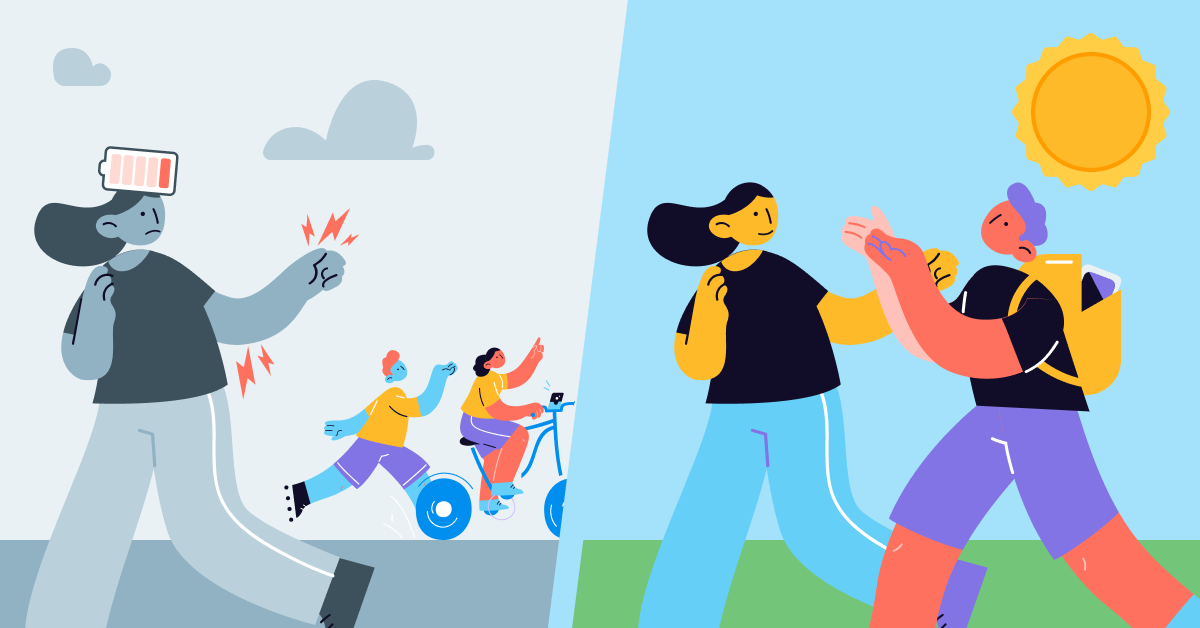Being the one to say no
Rheumatic diseases can be tricky. A pain that is usually not visible on the outside, and that comes and goes as it pleases. A fatigue that strikes suddenly and with full force, and that crushes the plans that have been looked forward to. It is not surprising if this also affects one's social life and relationships.
One day you're at your best at work, clear in your head, and you can even carry heavy bags from the store on your way home. Next day, nothing works. Even though you slept and ate well, your body is like a twisted rag. Do you recognize yourself?
Awkward saying no
Living with an unpredictable disease affects both the person living with the disease and the people around them. This may mean that, at short notice, you need to say no to things that you have already agreed to, which can feel uneasy—both because you really want to be part of that evening with your friends, and because there is often a fear of making others disappointed.
Maybe you even start to think about how your friends will want to plan things with you in the future if you drop out now, and start to believe yourself that you are someone who cannot be trusted. Then it is very important to distinguish between yourself and the disease—it is not you who is unreliable, it is the disease.
Uneasiness and feelings of guilt
Pain, stiffness and fatigue can make anyone feel down, frustrated and even angry. Of course, this can affect your close relationships. You may think that you as a person are a burden on the relationship, feel guilty for your behavior and feel compelled to compensate at a later time to make up for something that did not go as planned. But again, this is all about the disease.
You can of course have good relationships despite your diagnosis! It may just take a little more time and commitment to find your way.
Some tips along the way
So what can you do to make things easier for yourself in your relationships?
Don’t plan too much
Improve your chances of being able to take part in things that are fun and that make you feel good by prioritizing. This can be easier said than done as life is often filled to the brim with everything from work and everyday management to social commitments. But start by thinking about what limits you can set in your schedule. Can your to-dos at home be distributed differently? Can you block off times in your day when your calendar can simply be empty?
Find someone to talk to
When you talk to your loved ones, you probably want to feel that you have an equal relationship, that you both give and take. Can you get in touch with a therapist, with whom you can actually pour out exactly how you feel, without having to emotionally give anything back? To process and deal with experiences, feelings and problems with someone who is trained for it can provide new perspectives.
Explain to your loved ones
People around you don't know what you think and feel unless you explain it to them. Tell them how the disease behaves, that it can be unreliable and unpredictable, but that this has absolutely nothing to do with your will. You don't know in advance how you will feel, which days will be good and which will happen to be worse, and there needs to be room to change the plans you make.
Take care of yourself
You need to prescribe feel-good time for yourself. What is important to you right now? Do you need time to see your best friend? Or take a daily morning walk? Life is hard to get together, but consider your feel-good time as part of your treatment—something you can't compromise on. Neither you nor anyone else would suggest that you skip your medication this week because you have to vacuum or take the car in for repairs.
